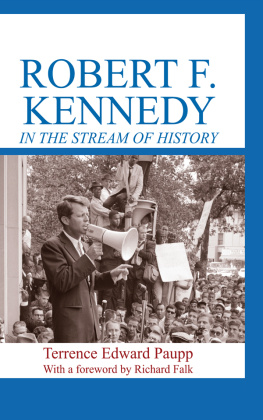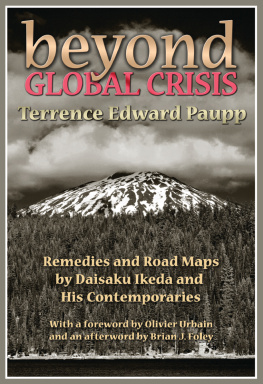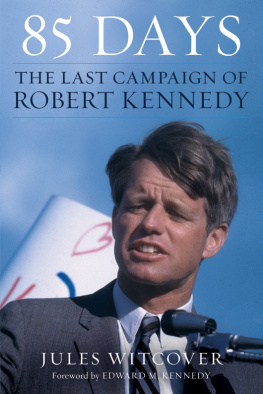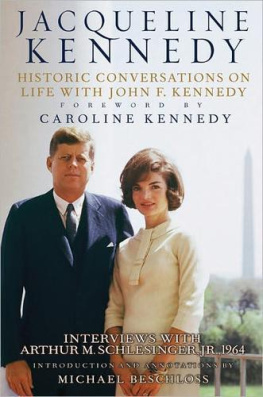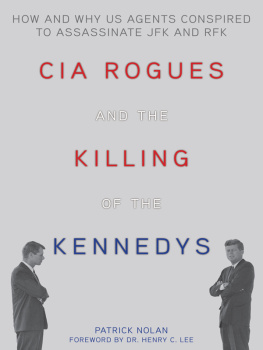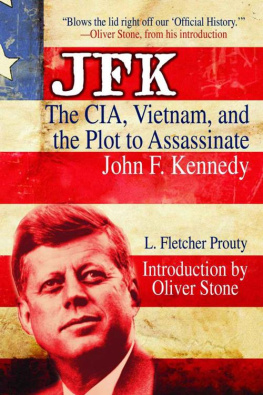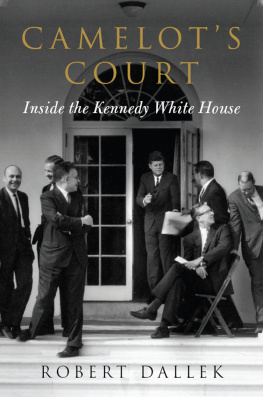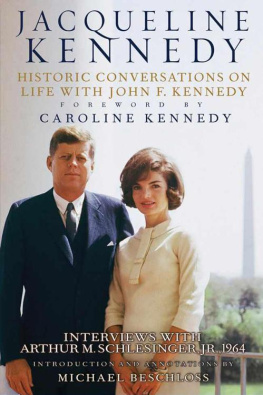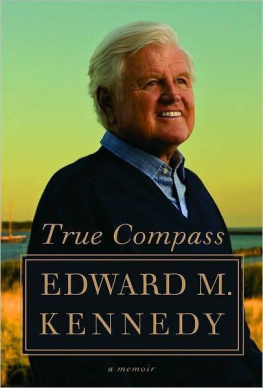First published 2014 by Transaction Publishers
Published 2017 by Routledge
2 Park Square, Milton Park, Abingdon, Oxon OX14 4RN
711 Third Avenue, New York, NY 10017, USA
Routledge is an imprint of the Taylor & Francis Group, an informa
Copyright 2014 by Taylor & Francis.
All rights reserved. No part of this book may be reprinted or reproduced or utilised in any form or by any electronic, mechanical, or other means, now known or hereafter invented, including photocopying and recording, or in any information storage or retrieval system, without permission in writing from the publishers.
Notice:
Product or corporate names may be trademarks or registered trademarks, and are used only for identification and explanation without intent to infringe.
Library of Congress Catalog Number: 2013029678
Library of Congress Cataloging-in-Publication Data
Paupp, Terrence Edward.
Robert F. Kennedy in the stream of history/Terrence Edward
Paupp; with a foreword by Richard Falk.
pages cm
1. Kennedy, Robert F., 1925-1968--Influence. 2. United States--
Politics and government--1945-1989. 3. Legislators--United States--
Biography. 4. United States. Congress. Senate--Biography. I. Title.
E840.8.K4P36 2014
973.92--dc23
2013029678
ISBN 13: 978-1-4128-5362-0 (hbk)
JOHN FITZGERALD KENNEDY
(19171963)
ROBERT FRANCIS KENNEDY
(19251968)
MARTIN LUTHER KING, JR.
(19291968)
Richard Falk
The killings of John F. Kennedy, Malcolm X, Martin Luther King, Jr., and Robert F. Bobby Kennedy were the most devastating attacks on American democratic prospects in the entire history of the country. These assassinations inflicted more enduring damage than either Pearl Harbor or the 9/11 attacks. It is not entirely comprehensible, but the elimination of these four public figures created a moral vacuum at the core of American political life that remains unfilled in any comparable manner. What instead filled this vacuum has been greed, cynicism, anger, demoralization, and, worst of all, a complete collapse of any collective faith in a better future.
It is not that the situation of the country was so positive before these men were violently removed from the scene. During these years, the Vietnam War was proceeding with unabated fury; the Cold War, with its attendant arms race, showed no signs of coming to an end; racism and poverty persisted; women were victimized in countless ways; gays faced homophobic violence and persecution; and the United States was using its muscle overtly and covertly to deny Third World peoples the possibilities of a progressive outcome of their struggles against oppression and colonialism.
And yet there was an atmosphere of hope and struggle, and a widespread endorsement of the phrase we shall overcome as expressive of prophetic words. There was a sense that the American narrative was moving, however sluggishly, toward solving its deepest problems. Was not slavery finally repudiated? Was not the struggle for civil rights eventually successful? Was not a war on poverty being waged? And was not the antiwar movement, formed in opposition to the Vietnam War, gaining ground? And were not women and gays raising their voices and finally being heard? Goethes remark seemed to capture the spirit of the times: Him who strives, he may we save.
It is within this overall setting that the life and death of Robert F. Kennedy assumes such an epic stature. It is this Kennedys assassination, the last of the four, that marks the boundary between collective moods of hope and despair. After Kennedys death, and the dying of his message of solidarity with the vulnerable and victimized in America and beyond its shores, came the dirty presidency of Richard Nixon, which, although it ended in disgrace and resignation, unfortunately set the political tone of the future. Jimmy Carter came along next, and did his best at first to revive American self-esteem, championing human rights as the centerpiece of American foreign policy, but quietly and quickly regressing when the Iranian opposition took his words to heart and mounted a successful revolution against the Shahs regimethe most valuable U.S. strategic ally in the region. Later Carter was humiliated by the seizure of the American Embassy and the taking of its entire staff as hostages. Next came the Reagan presidency, with its anti-labor, pro-capitalist, pro-militarist, and anti-welfare ethos. Instead of being lamented, the Reagan legacy is now celebrated across the spectrum of mainstream American politics. In this era of American crony capitalism, the entire country has become captive of the machinations of Enron, J. P. Morgan, and Goldman Sachs.
The 1960s language and policies of hope and compassion have virtually disappeared, and what we have in their place is a furious struggle between the center/right (Democratic Party) and the extreme right (Republican Party/Tea Party). The center/right is moving toward the institutionalization of authoritarian democracy, while the far right is drifting toward a previously unknown plutocratic fascism. Imagine a president, accused of being wimpy and socialist, who seems proud of personally selecting the persons to be killed by drone attacks and never finds a bad word to say about hedge funds, banks, and Wall Street. And then imagine his opposition that wants to lower taxes for the rich while cutting entitlements for the poor, cut to the bone government expenditures while embarking on yet another disastrous war (Iran), and acts as if deference to Israeli militarism has become a patriotic duty. All in all, it is a dreary spectacle!
Coming to the rescue is this magnificent book that both chronicles and celebrates the life of Bobby Kennedy, giving us unforgettably iconic glimpses of his personal life and political style, as well as probing assessments of his approach to the public concerns of his time that linger on in our time. Author Terrence Paupp has produced a noble and notable effort to revive the Kennedy legacy when it is urgently needed. More than anyone in recent American history, Bobby Kennedy epitomized our better angels by his own journey from hardcore Cold War Warrior to passionate advocate of peace, justice, and liberation. It reminds us about the political vistas that once were present, and ignites our imagination with hopes for a better future.
Paupps admirable text reminds us that toward the end of his life, Kennedy cast aside the pragmatic playbook that seems to be guiding the presidency of a closet liberal like Obama. For instance, Kennedy spurned his savvy political advisors by dwelling on the injustices experienced by Americas indigenous peoples despite being told that this would hurt his presidential campaign. The text also makes us aware that the dark shadows cast by his brothers death pushed Bobby Kennedy, in his last years, to adopt and extend JFKs presidential agenda, including an apparent resolve to end the Vietnam War, and to part from and repudiate Lyndon Johnsons presidential leadership. Paupps lucid essays chart Kennedys extraordinary intellectual and political journey that was itself inspired by such deep wellsprings of thought as Albert Camus and the Greek tragedian Aeschylus.
The invocation of Greek tragedy as a source of guidance in addressing the tribulations confronting Kennedy might also be connected in some subconscious way to a wider drama that enveloped Kennedys own life. It was the Kennedy brothers who were implicated in the Vietnam assassinations of the Nhu brothers in South Vietnam; the Nhus were seen as not prosecuting the war against North Vietnam and the National Liberation Front in the South in a satisfactory manner from an American counterinsurgency point of view. I have always felt that, in some haunting way, there was a connection between these ghastly murders, the Nhu brothers being the betrayed co-conspirators of Americas lethal global projection of its power. Perhaps these parallel sets of siblings, both casualties of their countrys troubles, need to be joined in our collective memory of what went wrong in the fateful decade of the 1960s.

